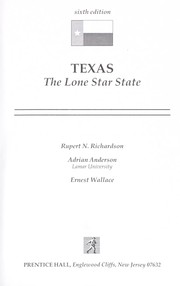How Long to Read The Tidelands Oil Controversy
By Ernest R. Bartley
How Long Does it Take to Read The Tidelands Oil Controversy?
It takes the average reader 5 hours and 29 minutes to read The Tidelands Oil Controversy by Ernest R. Bartley
Assuming a reading speed of 250 words per minute. Learn more
Description
This study is not written from the narrow perspective of “Who gets the oil?” It is a thoughtful probing of an issue—the ownership and control of the submerged soils of the marginal sea—the outcome of which may go far to determine the division of powers between states and nation under the American federal system. American constitutional law, international law, theory of federalism, American politics, the machinations of pressure groups, use of propaganda techniques, and issues of social and economic policy—all these features of American government and many more are inherent in the controversy. In 1947, in a precedent-making decision, the Supreme Court enunciated the principle that the federal government, not the states, has “paramount rights in and power over” the marginal seas which border the coastal states, and has “full dominion over the resources under that water area, including oil.” For more than 150 years the littoral states had exercised uncontested jurisdiction and ownership over the marginal-sea area, subject only to the powers specifically granted to the national government by the Constitution. The states had regulated the fisheries within the three-mile limit, applying state laws to vessels licensed under federal statutes. Long before oil possibilities were thought of, they had granted or leased areas in the marginal seas to private persons and corporations for purposes of land reclamation and harbor development, dredging for sand and gravel, development of oyster beds, and similar projects. These property rights can far exceed in value the wealth to be derived from petroleum. A just settlement of the issue, says the author, calls for restoration to the states of control of the marginal sea out to their historical boundaries—three miles in most cases; three leagues, or ten and one-half miles, in the case of Texas and the west coast of Florida. This study is based upon thorough investigation of all literature on the subject and personal interviews and correspondence with leaders on both sides of the controversy.
How long is The Tidelands Oil Controversy?
The Tidelands Oil Controversy by Ernest R. Bartley is 324 pages long, and a total of 82,296 words.
This makes it 109% the length of the average book. It also has 101% more words than the average book.
How Long Does it Take to Read The Tidelands Oil Controversy Aloud?
The average oral reading speed is 183 words per minute. This means it takes 7 hours and 29 minutes to read The Tidelands Oil Controversy aloud.
What Reading Level is The Tidelands Oil Controversy?
The Tidelands Oil Controversy is suitable for students ages 12 and up.
Note that there may be other factors that effect this rating besides length that are not factored in on this page. This may include things like complex language or sensitive topics not suitable for students of certain ages.
When deciding what to show young students always use your best judgement and consult a professional.
Where Can I Buy The Tidelands Oil Controversy?
The Tidelands Oil Controversy by Ernest R. Bartley is sold by several retailers and bookshops. However, Read Time works with Amazon to provide an easier way to purchase books.
To buy The Tidelands Oil Controversy by Ernest R. Bartley on Amazon click the button below.
Buy The Tidelands Oil Controversy on Amazon